- Home
- Tony Parsons
The Slaughter Man Page 3
The Slaughter Man Read online
Page 3
They pulled up carpets, ripped up floorboards, and punched holes in walls. They looked in the attic and in the recycling bins and in the drains. They looked in the oven and in the microwave and in the washing machine. And when they had done all of that and found nothing, they went out to the Japanese garden and searched under the neat grey stones. Then they went over the wall and into Highgate Cemetery.
The sun did not rise until just before eight a.m. And when it did, the men and women of the Specialist Search Team were still on their hands and knees, crawling inch by inch across the green hills of Highgate Cemetery. Hours before then DCI Whitestone had sent out the alert that a child was missing.
But as the sun came up our people still crawled across the graveyard, their fingers reaching in ancient tangles of ivy, their torches shining inside dusty crypts, watched from the wild by the angels with empty faces.
3
The missing boy smiled shyly down at us from the wall of Major Incident Room Two.
Missing children always smile in their pictures. That is what rips up your heart, those childish smiles of joy captured on some beach holiday or birthday party, with nobody ever dreaming what is waiting down the line.
‘You all know how it works,’ DCI Whitestone said. ‘We find him quickly …’
She left the rest of it unsaid because we knew it by heart.
Or we never find him at all.
This cruel fact had been hammered into us since our training days. All the statistics said that a child is found quickly or it’s likely that they will never be found alive. If we didn’t find the boy within twenty-four hours – seven days at the outside – then if we ever found him at all it would probably be stuffed into an abandoned suitcase or tossed on a skip or at the bottom of a river or buried in a shallow grave. When a child has been missing for over a week, happy endings are hard to find.
We had come straight into 27 Savile Row from spending the night at the house on the hill.
And the smiling little boy had a name now.
Bradley Wood.
Bradley was four years old and he had a wonky, lopsided smile. At some point in the night, the Divisional Surgeon had officially pronounced that his mother and his father and his sister and his brother were all dead. And as I looked at Bradley Wood’s smiling face I wondered what kind of life we would be bringing him back to with his family gone.
I bolted another triple espresso and pushed the thought aside.
Find him first.
He held a favourite toy in his small fist. An eight-inch plastic figure of a little man with a white shirt, black waistcoat and high boots. I looked closer and recognised Han Solo, the cocky captain of the Millennium Falcon.
‘Where are we with the victims?’ DCI Whitestone said, taking off her glasses and giving them a brief polish with a crumpled Café Nero paper napkin. She looked exhausted. We were all exhausted. Our Murder Investigation Team had had spent the night at the crime scene and then come straight into 27 Savile Row – West End Central – at dawn, working through the morning on identifying the dead. Now it was early afternoon and the pale winter sun was already sinking over the rooftops of Mayfair.
‘This is the Wood family,’ I said, hitting a key on my laptop. ‘The victims.’
There was a huge HD TV screen on the wall of MIR-2 and it was suddenly filled with one of the family photographs that I had first seen on the staircase of the Wood family home.
They smiled at us. The good-looking woman and man. Their two teenage children. Wealthy, athletic, beautiful. In the photograph they were all huddled up and laughing at some ski resort with baby Bradley at their centre.
‘The father, Brad, was a sports agent. The mother, Mary, she was a housewife. The boy is Marlon, fifteen, and the girl is Piper, fourteen. They were both at private schools in Hampstead. And then there’s Bradley.’
Whitestone shook her head. ‘Why do I feel like I know them?’ she said.
‘You recognise the mother,’ I said. ‘Mary Wood was once Mary Gatling and she was briefly very famous.’
Whitestone blinked with surprise behind her glasses. ‘The Mary Gatling of the 1994 Winter Olympics?’
I nodded. ‘At Lillehammer in Norway. The Ice Virgin, they called her.’
‘Mary Wood was the Ice Virgin?’ Whitestone said. ‘The girl who said she wasn’t going to have sex until she got married?’
‘That’s her. She was part of the UK’s team. A downhill skier. She didn’t get a medal but she got a lot of headlines. Announced that she was going to save herself until she got married. It was big news for about five minutes.’
‘She met her husband at the games in Lillehammer, right?’
‘Yes – Brad Wood. American. From a blue-collar family in Chicago. He was in Lillehammer for the biathlon. Cross-country skiing and shooting. Nearly won a medal. Met Mary in the Olympic Village.’
‘That’s the Ice Virgin,’ Whitestone said, shaking her head with wonder. ‘Mary Gatling. She didn’t lose her looks, did she?’
‘Gatling?’ DC Edie Wren said. ‘Like Gatling Homes? The property developers?’
‘Exactly like Gatling Homes,’ I said. ‘Mary was the eldest of Victor Gatling’s daughters. ‘She came from serious money. The old man started out as a runner for slum landlords in the Sixties. Then he bought a one-bedroom flat in Tottenham – did it up – sold it. And took it from there. The company has been upmarket for the last twenty years. Victor Gatling has to be seventy now at least. A lot of the new developments in prime London real estate are Gatling Homes: Kensington, Chelsea, Mayfair, Hampstead, Knightsbridge. They say Victor Gatling made two fortunes. Building homes for poor immigrants in the last century and building homes for rich immigrants in this century. They call him the man who built London. His son Nils has been running the show since the old man semi-retired.’
‘And what’s Mary’s husband Brad been doing for the last twenty years or so?’ Whitestone said.
‘Sports agent,’ I said. ‘Here and in the States. Worked briefly for the father-in-law. That didn’t work out.’
There were shouts and screams from down in the street and we all turned to look at the window. Four floors below MIR-2, the fury of the traffic was one unbroken howl. Savile Row is a narrow, canyon-like street, a place of bespoke tailors and hard-core Beatles fans looking for the scene of the band’s final gig. And from Conduit Street in the north to Burlington Gardens in the south, right now it was clogged with the world’s media. Banks of paparazzi, large vans with transmitting dishes, milling hordes of reporters were all waiting under the blue lamp of 27 Savile Row.
‘The MLO called again, boss,’ Wren said.
The MLO was our Media Liaison Officer.
‘Yes?’ Whitestone said.
‘She wants to know when you’re going to brief the press,’ Wren said. ‘That photo of little Bradley is going to be on every front page tomorrow morning. It’s going to be all over the evening news tonight. And it’s on every social network right now. And nothing’s moving down there.’
‘Tell the MLO I’ll brief the press when the next of kin have formally identified the bodies,’ Whitestone said impatiently.
Wren hesitated. ‘And I had a call from the Chief Super’s office.’
‘What did they want?’
‘They also want to know when you’re going to brief the press.’
Whitestone nodded grimly. ‘You can tell DCS Swire’s office exactly the same thing: I’m not talking to journalists until the family have seen the bodies.’
‘That’s happening now,’ Wren said. ‘Mary Wood’s next of kin has arrived at the Iain West.’
The Iain West Forensic Suite was the Westminster mortuary, named after the country’s legendary forensic pathologist.
‘Who’s over there?’
‘Mary Wood’s sister, accompanied by the FLO.’
The FLO was the Family Liaison Officer. Every police station in the world is acronym central.
Whitestone nodded, and turned to lo
ok at a map of London that reached from floor to ceiling.
‘How are we doing with the search, Curtis?
‘The major problem for the search teams is that our crime scene is in the greenest part of London,’ DI Curtis Gane said. ‘Lots of undergrowth, ditches, trees. Highgate Cemetery. Waterlow Park. Highgate Woods. Hampstead Heath. A couple of golf courses. It’s like looking for a body in a forest.’
‘And there’s a lot of water,’ Whitestone said. ‘The ponds in Highgate and Hampstead. Three reservoirs within – what? – a twenty-minute drive?’
‘Yes, boss,’ Gane said. ‘Brent Reservoir to the west. Manor House and Tottenham Hale to the east. We’ve called in Underwater Search and the Dive Team are working their way out. It’s hard going for the search teams, but they’ve got the full kit. Not just sniffer dogs – EVRDs.’
Enhanced victim recovery dogs are trained to detect human remains.
We stared at the photograph of the Wood family in silence.
‘It doesn’t make sense, does it?’ Whitestone said. ‘Spree killers don’t hit gated communities with a private security guard outside. And contract killers don’t abduct children.’ She paused, pushing her glasses up her nose, struggling to understand. ‘Who kills four people and then steals a child? Why does anyone steal a child?’
‘Extortion,’ Gane said. ‘That might fit. Demanding a ransom for the return of the child. These are seriously wealthy people.’
‘Trafficking,’ Wren said. ‘Abduction with the intent of sexual abuse, illegal adoption or organ farming.’
‘And murder,’ I said.
‘Get Dr Joe in here,’ Whitestone said. ‘Let’s have a psychological profile of the kind of creep who can kill a family and then abduct their child.’
Wren reached for her phone and hit the speed dial for Dr Joe Stephen, a forensic psychologist based at King’s College London.
‘No weapon?’ Whitestone said.
Gane shook his head. ‘Not yet.’
‘No prints? No partials?’
‘We heard from forensics,’ I said. ‘The house has been wiped down by a pro. But that fits with the lack of nine-millimetre casings. If he’s going to pick up his shells, he’s going to wipe the place down.’
‘He?’ Wren said. ‘Subduing an entire family is a big job for just one man. What makes you think—’
There was a roar down in the street.
I went to the window.
‘Someone’s talking to the press,’ I said.
Whitestone scowled, roughly pushing her glasses up her nose. ‘What?’
We leaned from the window but all we could see was the massed crush of reporters. So we turned on the TV and watched it on the rolling news.
Directly under the old blue lamp, a man and a woman were standing on the steps of 27 Savile Row. The woman was a slightly younger version of Mary Wood with the same cool blonde beauty. Like a girl from a Hitchcock film. The man was older, with thinning blond hair. Beside them I could see the FLO and the MLO, two young women in business suits, both looking pained.
‘Ah – ladies and gentlemen, your attention, please,’ said the MLO. ‘Can we stop pushing forward? Please! Ah, I am joined by Mr Nils Gatling and Ms Charlotte Gatling, the brother and sister of the deceased, Mary Gatling-Wood.’
The pack surged forward. Uniformed officers frowned under their helmets and attempted to keep the cameras and the microphones and the bodies off the steps outside West End Central.
Whitestone cursed. ‘Please don’t tell me they’re actually going to give a statement,’ she said.
‘Isn’t that going to get the public to help us?’ Wren said.
‘We don’t want their help,’ Gane said.
‘We rely on the public for help,’ Whitestone said. ‘But you can get too much help, Edie, and you can get all the wrong kind.’
‘We don’t want volunteers tramping through Highgate Woods,’ Gane said. ‘We don’t want telephone calls every time someone spots a fair-haired kid of four. We don’t want the cranks and nutters and fruitcakes. We don’t want a gang of squirrel-brained loonies giving us a helping hand. Because none of that helps us. All it does is get in the way of us doing our job.’
‘Too late now,’ Whitestone said.
The man – Nils Gatling – had begun to speak, his voice ragged with shock and pain.
‘My sister and I have just seen the body of our beloved sister and her beautiful family,’ he said, to an explosion of cameras. A forest of microphones was shoved towards him. ‘It is still difficult to comprehend that this tragedy has actually happened,’ he said. ‘Our sister’s family has been destroyed and our hearts have been broken. My family and I will of course cooperate in anyway we can to bring those who did this to justice. Our thoughts now are with my sister’s youngest child …’ He looked up. ‘Bradley.’
‘Please,’ his sister said, her voice as soft as a prayer, and the camera swung towards her. ‘Please don’t hurt my nephew.’
She did not cry. Yet her grief was so palpable that I found I could not breathe.
‘Bradley is a beautiful little boy who never hurt anyone,’ she said. ‘Don’t hurt him. Please, please. Just bring him home – bring him home to the only family he has left. Bring Bradley back.’
The camera held her.
The camera loved her.
‘That’s their headline tomorrow,’ Gane said. ‘Bring Bradley back.’
‘She looks like God’s second attempt at – what’s the name of that old actress?’ said Wren. ‘Oh, yeah. Michelle Pfeiffer.’
And still the camera could not pull itself away from that hypnotic combination of beauty and grief.
Her brother Nils said a few more words, and then there was some meaningless soft-spoken waffle from the MLO about respecting privacy.
But still the camera lingered on Charlotte Gatling.
The TV cameras could not get enough of her. The photographers gazed up at her, desperately capturing her face as it was on those moments under the blue lamp of 27 Savile Row on a cold day in January.
And I found that, just like all those cameras, I could not look away from her face.
I heard Whitestone sigh.
‘We’re going to need a bigger room,’ she said.
I awoke with a start in the dead of the night.
4.10 a.m., warned the clock by my bed.
Too early to get up. Too late to go back to sleep.
What had woken me?
I quickly went into Scout’s bedroom. But she was sleeping peacefully, her school clothes for the morning waiting on an old-fashioned wooden stand, carefully placed there by Mrs Murphy.
I watched Scout’s sleeping face, marvelling that I had somehow helped to produce the most beautiful little kid in the world. I know that every parent feels that way. What was different about my daughter was that she really was the most beautiful little kid in the world.
I padded to the kitchen, hearing Stan snoring in the darkness, the old-man wheeze of the short-nosed dog. I made myself coffee and looked at my phone. Edie Wren had left me a message fifteen minutes ago:
I know why they died.
As I called her number, I walked to the window of our loft and looked down at the blazing lights of Smithfield meat market.
Four in the morning and the men were in the middle of their work. It made me feel better, like less of a freak for being awake at this hour. Wren answered immediately, and I sensed that she had not slept at all.
‘They had a strong digital presence,’ Wren said. ‘The Woods. Try Googling them, Max.’ I was already turning on my MacBook Air in the kitchen. ‘You get seven million results in just under half a second.’
‘Because of Lillehammer,’ I said. ‘Because she was the Ice Virgin, half a lifetime ago. You’re not just famous for fifteen minutes now. It all stays out there forever.’
‘Not just that,’ Wren said. ‘Not just the winter Olympics and Mary the Ice Virgin. I mean now. This family – they put films online. You know – ha
ppy family stuff: Here’s us having fun at Val d’Isère. Here’s us celebrating one of our birthdays. Here’s us on a boat in Barbados. Oh, and here’s us looking gorgeous.’
There were so many results for the Woods that I didn’t know where to start.
‘What are you talking about?’ I said. ‘Sharing their happiness or showing off?’
‘Is there a difference?’
By now I was on YouTube looking at the Woods on their Easter holiday in Geilo, Norway. They looked like a family in an advertisement for something you realise that you desperately need. And under their beautiful smiling faces, I scrolled down the comments section, and I flinched at the spite, the malice and the abuse. Their happiness enraged the great anonymous public.
‘I want to turn these comments off, Edie,’ I said. ‘It’s like swimming in a sewer.’
‘You can’t turn them off, Max. You can never turn them off.’
‘So what’s your theory?’
‘It’s not a theory,’ she said. ‘I felt like saying it in MIR-2 but I didn’t have the nerve. Because it sounds stupid.’
‘Say it, Edie.’
‘Look at those comments, Max. Look at all that filth. Look at how much the world hates the beautiful people, the rich ones, the lucky ones with all the money and love. Look how the world hates the happy ones. Can’t you see it, Max? Somebody killed the Wood family because they were happy.’
4
We got up early to see the Queen’s horses.
It was still freezing dark when Stan, Scout and I took our places on the corner of Charterhouse Street and Farringdon Road. As usual, our conversation revolved mostly around our dog.
‘Stan doesn’t have one of those happy dog faces, does he?’ Scout said.
I knew what she meant. He was a beautiful dog but he didn’t have one of those upturned, grinning, ain’t-life-grand? mouths that dogs sometimes have, with tongue lolling and eyes twinkling, the kind of dog face that you see in commercials for pet food. Stan would never wear a rakish smirk. He had the mournful downturn of the Spaniel’s mouth. But his windscreen-wiper tail told me he was happy to be out on an early morning adventure with all of our little family, and his ruby-coloured coat was like molten silk, and he gazed up at Scout as if she was the absolute centre of the universe.

 Long Gone the Corroboree
Long Gone the Corroboree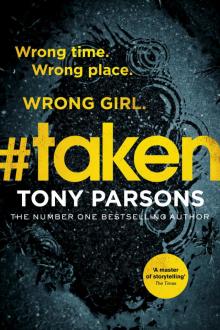 #taken
#taken The Family Way
The Family Way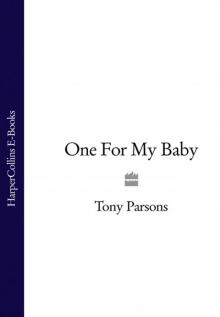 One For My Baby
One For My Baby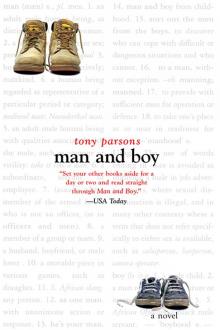 Man and Boy
Man and Boy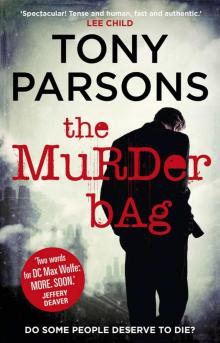 The Murder Bag
The Murder Bag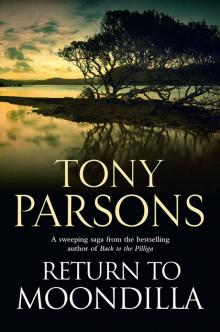 Return to Moondilla
Return to Moondilla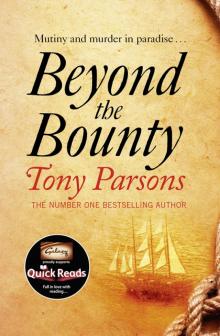 Beyond the Bounty
Beyond the Bounty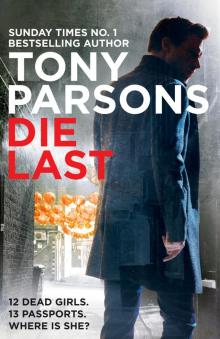 Die Last
Die Last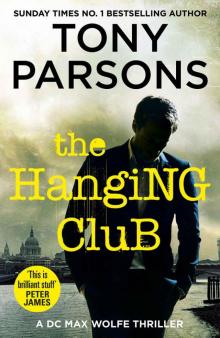 The Hanging Club (DC Max Wolfe)
The Hanging Club (DC Max Wolfe)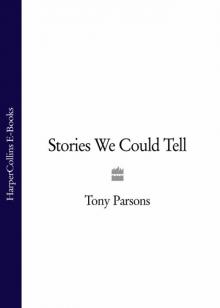 Stories We Could Tell
Stories We Could Tell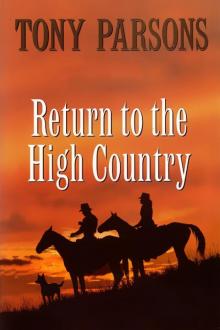 Return to the High Country
Return to the High Country Silver in the Sun
Silver in the Sun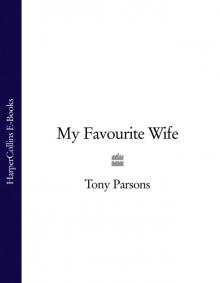 My Favourite Wife
My Favourite Wife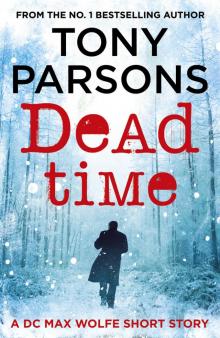 Dead Time
Dead Time Girl On Fire
Girl On Fire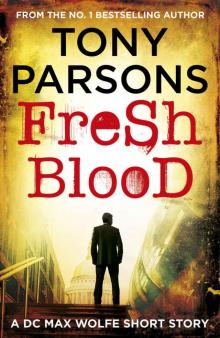 Max Wolfe 02.5 - Fresh Blood
Max Wolfe 02.5 - Fresh Blood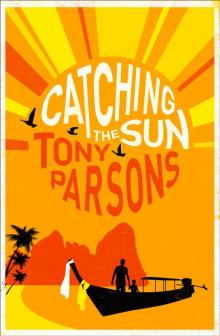 Catching the Sun
Catching the Sun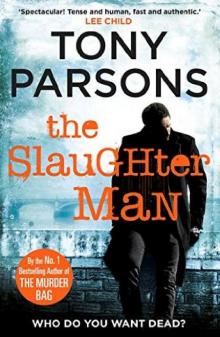 The Slaughter Man
The Slaughter Man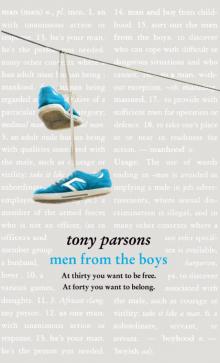 Men from the Boys
Men from the Boys Man and Wife
Man and Wife Valley of the White Gold
Valley of the White Gold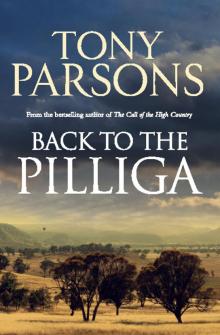 Back to the Pilliga
Back to the Pilliga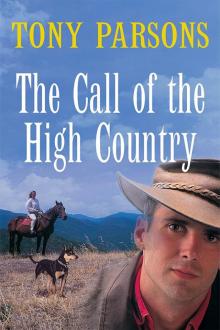 The Call of the High Country
The Call of the High Country Girl On Fire_DC Max Wolfe
Girl On Fire_DC Max Wolfe